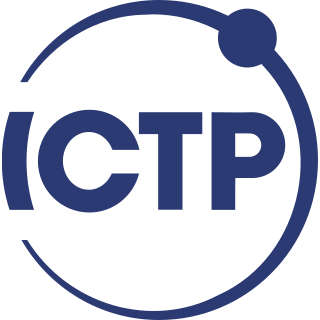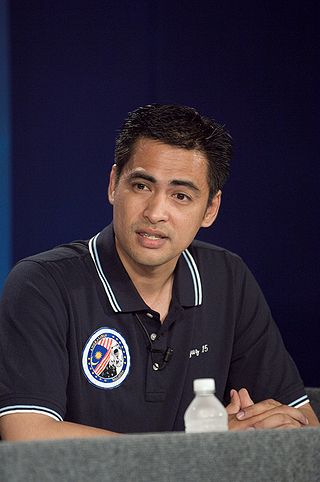
The Internet Governance Forum (IGF) is a multistakeholder governance group for policy dialogue on issues of Internet governance. It brings together all stakeholders in the Internet governance debate, whether they represent governments, the private sector or civil society, including the technical and academic community, on an equal basis and through an open and inclusive process. The establishment of the IGF was formally announced by the United Nations Secretary-General in July 2006. It was first convened in October–November 2006 and has held an annual meeting since then.
The Framework Programmes for Research and Technological Development, also called Framework Programmes or abbreviated FP1 to FP9, are funding programmes created by the European Union/European Commission to support and foster research in the European Research Area (ERA). Starting in 2014, the funding programmes were named Horizon.
Francis Eric Knight Britton was an American political scientist and sustainability activist who has lived and worked in Paris, France, since 1969. As the main convenor of The Commons: Open Society Sustainability Initiative and its various networks, he is well known for promoting integrated public transport, carsharing and bike sharing.

The Abdus Salam International Centre for Theoretical Physics (ICTP) is a research center for physical and mathematical sciences, located in Trieste, Friuli-Venezia Giulia, Italy.
A Science Shop is a facility, often attached to a specific department of a university or an NGO, that provides independent participatory research support in response to concerns experienced by civil society. It's a demand-driven and bottom-up approach to research. Their work can be described as community-based research (CBR). Science Shops were first established in the Netherlands in the 1970s and their main function is to increase both public awareness and to provide access to science and technology to laymen or non-profit organizations.

The International Union of Forest Research Organizations (IUFRO) is a non-profit, non-governmental international network of forest scientists, headquartered in Austria. In 2019, IUFRO counted 630 Member Organizations worldwide.
The Swiss Academies of Arts and Sciences is a Swiss organization that supports and networks the sciences at a regional, national and international level. They are designated by the Federal Act to Promote Research and Innovation to promote research together with the Swiss National Science Foundation.
The European Federation of Biotechnology (EFB) was established by European scientists in 1978. It is a non-profit federation of national biotechnology associations, learned societies, universities, scientific institutes, biotechnology companies and individual biotechnologists working to promote biotechnology throughout Europe and beyond.
The Materials Research Society (MRS) is a non-profit, professional organization for materials researchers, scientists and engineers. Established in 1973, MRS is a member-driven organization of approximately 13,000 materials researchers from academia, industry and government.
The Science Communication Observatory is a Special Research Centre attached to the Department of Communication of the Pompeu Fabra University in Barcelona, Spain, set up in 1994. This centre is specialized in the study and analysis of the transmission of scientific, medical, environmental and technological knowledge to society. The journalist Vladimir de Semir, associated professor of Science Journalism at the Pompeu Fabra University, was the founder and is the current director of the centre. A multidisciplinary team of researchers coming from different backgrounds is working on various lines of research: science communication; popularization of sciences, risk and crisis communication; science communication and knowledge representation; journalism specialized in science and technology; scientific discourse analysis; health and medicine in the daily press; relationships between science journals and mass media; history of science communication; public understanding of science; gender and science in the mass media, promotion of scientific vocations, science museology, etc.

The Lindau Nobel Laureate Meetings are annual scientific conferences held in Lindau, Bavaria, Germany, since 1951. Their aim is to bring together Nobel laureates and young scientists to foster scientific exchange between different generations, cultures and disciplines. The meetings assume a unique position amongst international scientific conferences, as from 30 to 65 Nobel laureates attending each edition they are the largest regular congregation of Nobel laureates in the world, apart from the Nobel Prize award ceremony in Stockholm.
Luke Georghiou is Deputy President and Deputy Vice-Chancellor at the University of Manchester. He is also professor of science and technology policy and management at the Manchester Institute of Innovation Research at Manchester Business School.

Science policy in Malaysia is regulated by the Ministry of Science, Technology, and Innovation. The ministry focuses on five areas: biotechnology, ICT policy, industry, sea to space and core science and technology. Other ministries, such as the Ministry of Agriculture and the Ministry of Health also have science departments. Training in scientific areas was promoted during the 1970s and 1980s. From 1987 to 1997 research and development used 0.24% of GNP, and in 1998 high-tech exports made up 54% of Malaysia's manufactured exports.

The World Resources Forum (WRF) is a non-profit organisation for sharing knowledge about the economic, political, social and environmental implications of global resource use. WRF promotes resource productivity among researchers, policymakers, business, NGOs and the public. In addition to organizing international and regional conferences, the WRF Secretariat coordinates multistakeholder dialogue projects, amongst others the Sustainable Recycling Initiative (SRI) as well as the H2020 projects Towards a World Forum on Raw Materials (FORAM), and CEWASTE. The WRF contributes to other EC-projects and projects with the German development organisation GiZ, UNEP and UNIDO.

The Astana International Forum (AIF) is an international and regional platform for dialogue and a nonprofit organization headquartered in Astana, Kazakhstan. Previously called the Astana Economic Forum, it has been organized by the Government of Kazakhstan since 2008. The name change reflects the broader range of topics discussed at the forum, such as climate, food and energy security and is intended to draw of attendees from around the world. The Forum is organized by the Government of Kazakhstan, which includes the Economic Research Institute, Ministry of National Economy and Ministry of Foreign Affairs. A meeting is held each year in Astana in which more than eight thousand delegates from one hundred countries are brought together: they include chief executive officers, politicians, journalists, scientists and Nobel Prize laureates. The 2024 Forum will be held on 13-14 June 2024, under the chairmanship of President Kassym-Jomart Tokayev.
Open Innovations is an annual international forum that focuses on new technologies and perspectives of the international cooperation on innovations.
Urban Culture Lab is an interdisciplinary forum for studies in urban culture and was established spring 2014. The Lab is based at the Faculty of Humanities, which is a part of the University of Copenhagen. The main focus of Urban Culture Lab is to bring together scholars of urban culture, cities, livability and urbanity. The Lab is headed by associate professor Henrik Reeh.
Forest Sciences and Technology Centre of Catalonia (CTFC) is a centre for forest research based in Solsona, Lleida, and is among the leading applied research centres in Spain. It was founded in 1996 as a consortium of five local and regional institutions. The institution has grown to employ over one hundred professionals who work in collaboration with different administrations, institutions and companies, and its annual budget is around 14 million euros.
The European Union's scientific collaboration beyond the bloc describes the European Union's frameworks for bilateral cooperation and specific projects in science and technology, with countries and regional blocs situated beyond the European Union.
The National Documentation Centre is a Greek public organisation that promotes knowledge, research, innovation and digital transformation. It was established in 1980 with funding from the United Nations Development Programme with the aim to strengthen the collection and distribution of research-related material, and to ensure full accessibility to it. It has been designated as a National Scientific Infrastructure, a National Authority of the Hellenic Statistical System, and National Contact Point for European Research and Innovation Programmes. Since August 2019, it has been established as a discrete public-interest legal entity under private law, and is supervised by the Ministry of Digital Governance. The management bodies of EKT are the Administrative Board and the Director who, since 2013, has been Dr. Evi Sachini.






